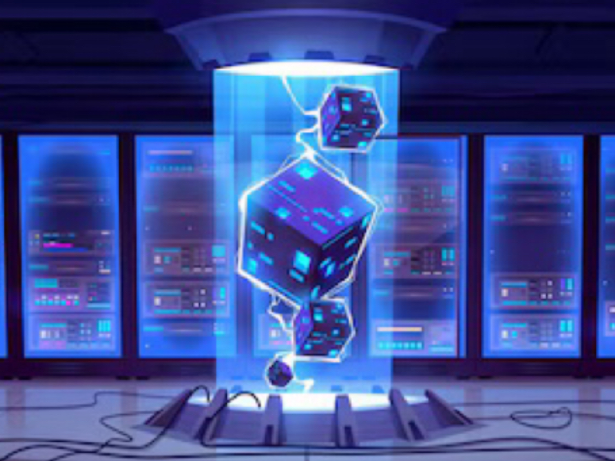- Blockchain improves supply chain transparency and reduces fraud through traceability and smart contracts.
- In healthcare, blockchain enhances data security and patient care coordination, and in financial services, it enables faster, cheaper, and more secure transactions, promoting financial inclusion.
- Blockchain can secure voting systems, reducing fraud and increasing trust, and it also helps protect intellectual property and simplifies licensing and royalty distribution.
_____________
Blockchain technology is most commonly linked to cryptocurrencies like Bitcoin, but its potential stretches far beyond digital currencies. This feature explores how blockchain is transforming various industries by offering secure, transparent, and decentralized solutions.
“Blockchain is the technology that will underpin the next generation of the internet, changing the way we live, work, and relate to each other.” said Don Tapscott, who is the author of “Blockchain Revolution.”
Also read: Blockchain technology: Its inception and origins
“Blockchain is the technology that will underpin the next generation of the internet, changing the way we live, work, and relate to each other.”
Don Tapscott, Author of “Blockchain Revolution”
Supply Chain Management
Blockchain is revolutionizing supply chains by improving transparency, traceability, and efficiency. It enables businesses to track goods from origin to delivery, ensuring product authenticity and reducing fraud. With smart contracts, blockchain streamlines transactions, cutting costs and boosting operational efficiency.
Healthcare
In healthcare, blockchain can provide a secure way to store and share patient data, ensuring privacy and improving care coordination. It offers a tamper-proof record of medical histories, reducing errors and enhancing the accuracy of diagnoses. Blockchain also facilitates secure medical research data sharing, speeding up innovation.
Also read: 3 key uses of blockchain technology: Finance, logistics and healthcare
Voting Systems
Blockchain has the potential to revolutionize voting systems by creating secure, transparent, and tamper-proof election processes. It could eliminate fraud, improve voter turnout, and enhance trust in democratic systems by allowing for verifiable and immutable records of votes.

Intellectual Property & Digital Rights
Blockchain can be used to protect intellectual property by providing clear, transparent records of ownership. Artists, writers, and creators can securely manage and track their work, ensuring they receive fair compensation for its use. Blockchain also simplifies licensing and royalty distribution, ensuring creators retain control over their content.
_____________
Pop Quiz:
What are the areas where blockchain can’t be used?
A. Supply Chain Management
B. Healthcare
C. Fashion
D. Voting Systems
The correct answer is at the bottom of the article
_____________
“Blockchain is a way to do things that are decentralized, open, and secure — things that were impossible before.”
Vitalik Buterin, Co-founder of Ethereum
Financial Services and Beyond
Vitalik Buterin, who is the co-founder of Ethereum, has said that “Blockchain is a way to do things that are decentralized, open, and secure—things that were impossible before.” Beyond cryptocurrencies, blockchain is reshaping traditional financial services, from cross-border payments to decentralized finance (DeFi) applications. Blockchain allows for faster, cheaper, and more secure transactions, offering financial inclusion to underserved populations.
While blockchain’s association with cryptocurrency often overshadows its broader impact, its potential to transform industries is undeniable. Over the next decade, blockchain could reshape everything from supply chains to voting systems, driving innovation, security, and transparency in ways previously unimaginable. As businesses and governments increasingly adopt blockchain solutions, the technology will likely continue to unlock new possibilities across multiple sectors.
_____________
Quiz Answer:
C. Fashion

